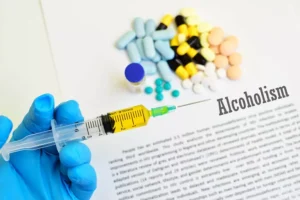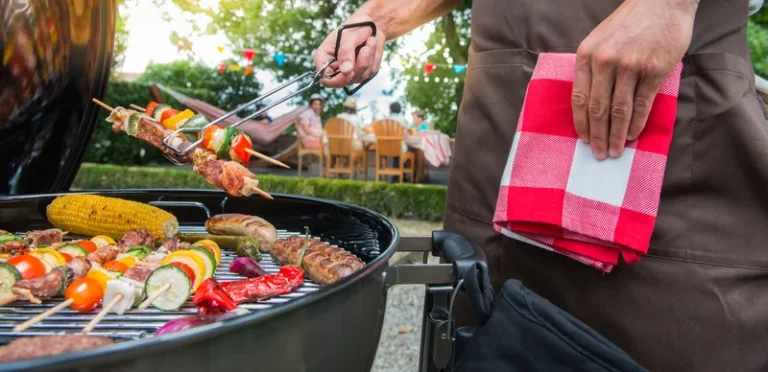
We ignore our “slippery slope,” focused as we are on the old behavior. Now is the time to put our plan into action or we increase the risk of a lapse. If we would consider why we made the change in the first place, we would remember how the old behavior made us feel worse. Talking to a supportive person, distraction, or relaxation can help relieve the pressure. At some point after making a change, the demands of maintaining it seem to outweigh the benefits of the change.
Types & Stages of Relapse
Addiction and relapse are formidable foes, but with the right tools and support, lasting recovery is within reach. Cognitive behavioral therapy, especially when integrated with trauma-informed care, has proven to be a beacon of hope for individuals battling addiction. Regardless of the reasons behind a relapse, it’s crucial to understand that it doesn’t signify failure. Each attempt at lifelong sobriety serves as a valuable learning experience and a step in the right direction. With the right support and the essential tools for recovery, the next attempt could be the one that endures.

Identify Triggers

The final stage is succumbing to temptation and engaging in drug or alcohol use again. This could involve going to a bar or liquor store, contacting your dealer, or retrieving your old stash. If our guilt is intense, in the absence of a plan, we likely will relapse until our next effort to change. relapse prevention A cigarette ad attracts us, or someone in a group puts us down, or we strain ourselves by overdoing exercise. Once you figure out your own triggers, think about something you can do instead of substance use for each one. Could you wrap up each day with a long walk instead of a cocktail?
Relapse Is Not a Failure
Studies suggest that up to 80% of individuals attempting to quit drinking may experience at least one relapse within the first year. It’s a stark reminder of alcohol’s pervasive presence in our society and the challenges of maintaining sobriety in a world where drinking is often the norm. Contact a healthcare professional if you or someone you know suffers from a substance use disorder. You can learn about the best relapse-prevention treatment options for your needs. Events, specific people (such as friends who are also using), and certain places can put you at a higher risk of relapsing. Whether you or a loved one are experiencing challenges controlling their addictive behaviors, the road toward rebuilding self-control can be overwhelming.
When the urge to use hits, remind yourself why you started down the path to recovery in the first place. Think about how out of control or sick you felt when you were using. Remember the embarrassing things you may have done or the people you may have hurt.
Careers – Join Our Team
Craving is an overwhelming desire to seek a substance, and cravings focus all one’s attention on that goal, shoving aside all reasoning ability. Perhaps the most https://ecosoberhouse.com/ important thing to know about cravings is that they do not last forever. It is also necessary to know that they are not a sign of failure; they are inevitable.
Cognitive Behavioral Therapy (CBT)
- Recognize that cravings are inevitable and do not mean that a person is doing something wrong.
- Mindfulness is a practice that involves being present in the moment and being aware of your thoughts without judgment.
- If you fear you are at imminent risk of relapsing, contact them immediately.
- This shows our immediate need to develop a diversion plan to deal with cravings.
- Naomi Carr is a qualified mental health nurse with several years of experience working with children and adults in the UK.
You may have to experiment a bit to find new approaches that work best. The goal is to develop new routines that are rewarding rather than leaning on the drug. This article will take an in-depth look into relapse after getting clean and what to do about it. But sometimes people don’t even realize they took fentanyl in counterfeit Adderall or Xanax pills or while smoking meth. Are you tired of fighting against the craving to drink every day?

More Commonly Misspelled Words
If someone has already undergone a treatment program with counseling and therapy but continue to relapse, it might be time to explore alternative care or enter an extended, intensive treatment program. Trauma may not have been adequately addressed, necessitating more effective techniques or a longer duration of treatment. One recent 2022 study revealed that trauma plays a significant role in relapse.
- People can move on from the relapse with a stronger commitment to avoiding future relapses by avoiding or managing triggers before they occur.
- The longer someone neglects self-care, the more that inner tension builds to the point of discomfort and discontent.
- Whether it lasts a week, a month, or years, relapse is common enough in addiction recovery that it is considered a natural part of the difficult process of change.
- They will likely feel the strong desire to continue to use once they do even one time.
- A person in recovery may begin to relive the days of their drug abuse and look back on them in a positive light.
Many people who struggle with addiction turn to their substance or activity of choice as a maladaptive way of coping. Talk with a healthcare professional if you think a trigger may cause a depression relapse. A treatment plan could include coping mechanisms to help you identify and face certain triggers. Relapse prevention is an umbrella term that refers to strategies that help reduce the likelihood of relapsing. Most relapse prevention strategies focus on building cognitive-behavioral skills and coping responses. Remember, if you are trying to quit, you should plan for and try to avoid relapse.
Whether it lasts a week, a month, or years, relapse is common enough in addiction recovery that it is considered a natural part of the difficult process of change. Between 40 percent and 60 percent of individuals relapse within their first year of treatment, according to the National Institute on Drug Abuse. Relapse in addiction is of particular concern because it poses the risk of overdose if someone uses as much of the substance as they did before quitting. As we look to the future, emerging technologies offer exciting possibilities for relapse prevention.
